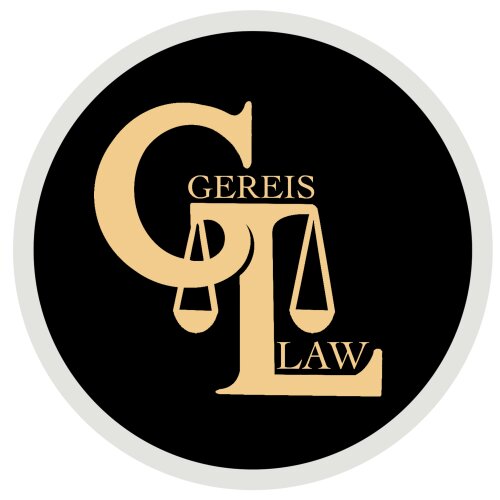Best Drug Crime Lawyers in Vermont
Share your needs with us, get contacted by law firms.
Free. Takes 2 min.
Or refine your search by selecting a city:
List of the best lawyers in Vermont, United States
About Drug Crime Law in Vermont, United States
Drug crime law in Vermont covers a variety of offenses related to the possession, manufacture, distribution, and trafficking of controlled substances. Controlled substances can include both illegal drugs like heroin, methamphetamine, and cocaine, as well as certain prescription medications handled without a valid prescription. Vermont statutes classify these substances and specify penalties depending on factors such as the amount involved, the type of substance, and any prior offenses. Drug crimes are prosecuted seriously by Vermont authorities, with consequences ranging from fines and probation to significant prison sentences.
Why You May Need a Lawyer
People may require legal assistance for drug crimes in Vermont in several situations. Common scenarios include being charged with drug possession, intent to distribute, manufacturing, trafficking, or prescription fraud. The legal process can be overwhelming and the consequences severe, including a permanent criminal record, loss of employment opportunities, driver's license suspension, and restrictions on housing or educational loans. A lawyer can help protect rights, build defenses, negotiate plea deals, and navigate complex court procedures. Legal representation is especially important for those facing felony charges or repeat offenses, or when constitutional rights may have been violated during search, arrest, or questioning.
Local Laws Overview
Vermont classifies controlled substances into five schedules, with Schedule I being the most strictly regulated. State laws prohibit the possession, sale, furnishing, trafficking, and cultivation of these substances. Marijuana has separate laws; although recreational use is legal for adults in limited amounts, unlicensed sale or possession of large quantities remains a crime. Sentencing depends on the drug type, quantity, and offender's history. Vermont also has diversion programs, treatment courts, and alternative sentencing options for eligible first-time offenders. However, certain offenses carry mandatory minimum sentences, especially those involving sale near schools or involving minors.
Frequently Asked Questions
What is considered a drug crime in Vermont?
A drug crime in Vermont includes any offense involving the possession, cultivation, manufacture, distribution, or sale of controlled substances. This covers both illegal drugs and misuse of prescription medication.
Is marijuana legal in Vermont?
Recreational marijuana is legal for adults 21 and over, but there are limits on possession, use, and cultivation. Selling without a license or possessing large amounts can still result in criminal charges.
What are the penalties for drug possession in Vermont?
Penalties depend on the drug type, the amount, and any prior convictions. Penalties can range from fines and probation for minor offenses to years of incarceration for serious or repeat charges.
Can charges be dropped or reduced?
Charges may be reduced or dismissed in certain circumstances, especially for first-time offenders or minor possession cases. Diversion programs and plea negotiations are possible with legal representation.
What should I do if I am arrested for a drug crime?
Remain calm, do not resist, and exercise your right to remain silent. Request to speak to a lawyer before answering questions or agreeing to searches.
Are drug laws prosecuted at the state or federal level?
Most drug crimes in Vermont are prosecuted under state law, but cases involving large quantities, trafficking across state lines, or certain drug types can trigger federal charges, which carry harsher penalties.
Can I lose my driver's license because of a drug conviction?
Yes, certain drug convictions in Vermont can result in the suspension or revocation of your driver's license, especially if the offense involved operating a vehicle.
Are there alternative sentencing options for drug crimes?
Vermont offers diversion programs, drug treatment courts, and other alternatives to incarceration for eligible individuals, particularly first-time or low-level offenders.
Can juvenile drug offenses affect my future?
Yes, juvenile drug offenses can impact future employment, education, and housing. However, juvenile records may be sealed or expunged in some cases, particularly with legal intervention.
Do I need a lawyer if I am innocent?
Even if you believe you are innocent, it is critical to consult a lawyer. Legal counsel can protect your rights, ensure proper procedures are followed, and help present your case effectively in court.
Additional Resources
Vermont residents seeking help with drug crime issues can contact the following resources:
- Vermont Department of Public Safety: Oversees law enforcement and provides information about drug laws and enforcement. - Vermont Judiciary: Offers information on court procedures, diversion programs, and legal processes. - Office of the Vermont Attorney General: Publishes updates on laws and enforcement priorities related to drug crimes. - Vermont Legal Aid: Provides free or low-cost legal assistance for eligible individuals accused of drug offenses. - Local bar associations: Can help connect individuals with qualified criminal defense attorneys in Vermont.
Next Steps
If you or someone you know is facing a drug crime charge in Vermont, consider taking the following steps:
- Do not discuss your case with law enforcement or anyone else until you have secured legal representation. - Gather any documents or information related to your charges, such as police reports or court notices. - Contact a qualified criminal defense attorney who has experience handling drug crime cases in Vermont. - Consider eligibility for diversion or alternative sentencing programs and discuss these options with your lawyer. - Attend all required court appearances and follow your lawyer's guidance throughout the process.
Acting promptly and seeking legal counsel can help protect your rights and potentially reduce the negative impacts of a drug crime charge in Vermont.
Lawzana helps you find the best lawyers and law firms in Vermont through a curated and pre-screened list of qualified legal professionals. Our platform offers rankings and detailed profiles of attorneys and law firms, allowing you to compare based on practice areas, including Drug Crime, experience, and client feedback.
Each profile includes a description of the firm's areas of practice, client reviews, team members and partners, year of establishment, spoken languages, office locations, contact information, social media presence, and any published articles or resources. Most firms on our platform speak English and are experienced in both local and international legal matters.
Get a quote from top-rated law firms in Vermont, United States — quickly, securely, and without unnecessary hassle.
Disclaimer:
The information provided on this page is for general informational purposes only and does not constitute legal advice. While we strive to ensure the accuracy and relevance of the content, legal information may change over time, and interpretations of the law can vary. You should always consult with a qualified legal professional for advice specific to your situation.
We disclaim all liability for actions taken or not taken based on the content of this page. If you believe any information is incorrect or outdated, please contact us, and we will review and update it where appropriate.
Browse drug crime law firms by city in Vermont
Refine your search by selecting a city.









